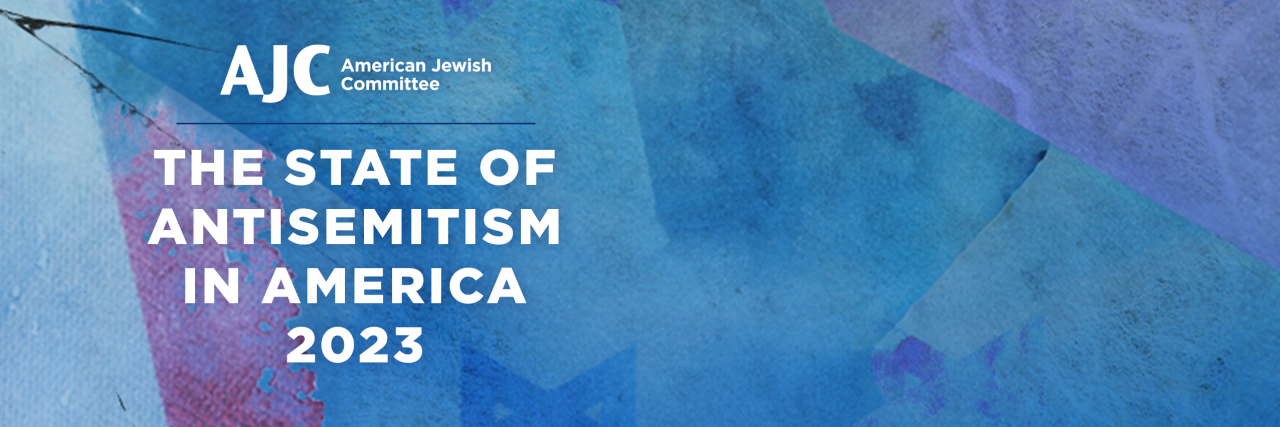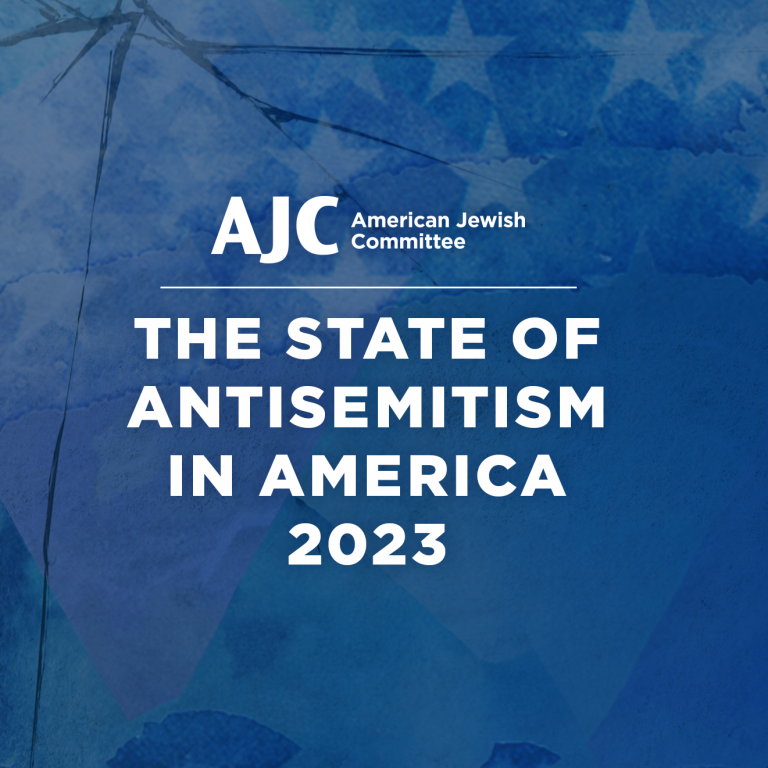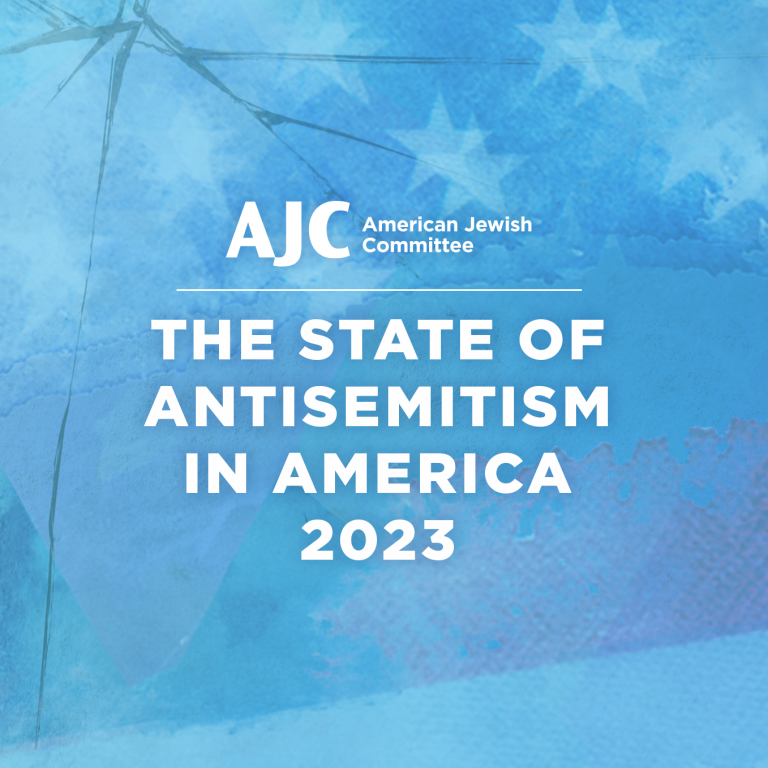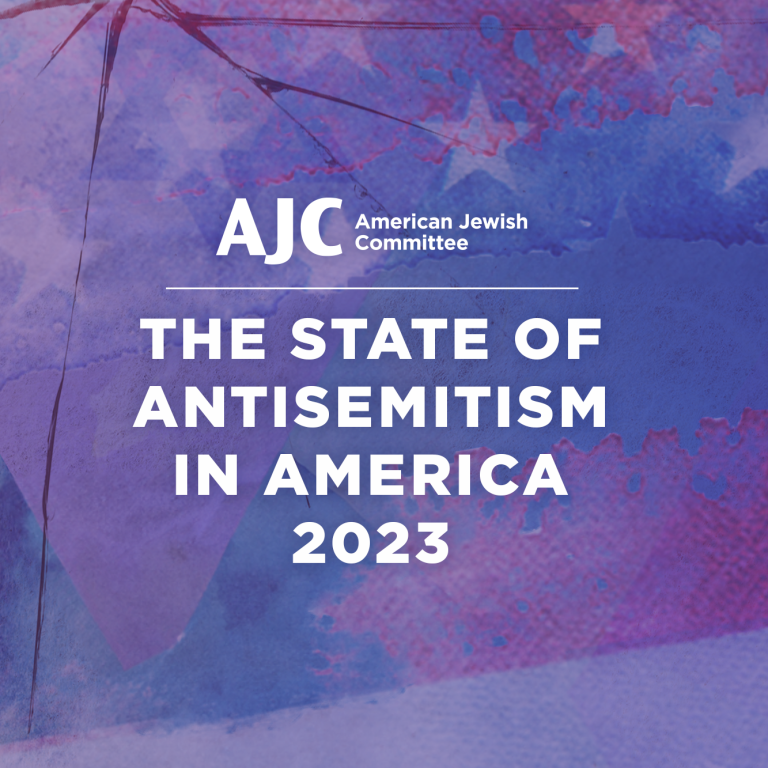February 18, 2024
American Jewish Committee’s State of Antisemitism in America 2023 Report reveals that antisemitism online and on social media continues to be the place where American Jews experience antisemitism the most. Sixty-two percent report seeing or hearing antisemitism online or on social media in the past 12 months, including 6% who say this happened once, and 56% who say it happened more than once. One 24-year-old Jewish woman lamented, “t is incredibly difficult to read antisemitic posts on social media and feel like there is no recourse or space for conversation.”
The 2023 survey again asked those who experienced antisemitism online exactly where they had experienced it. Among all Jewish adults who experienced antisemitic content online at least once in the past 12 months, 51% say they experienced antisemitism on Facebook, 47% say they experienced it on X (formerly known as Twitter), 27% on Instagram, 24% on YouTube, and 18% on TikTok. Another one in ten (11%) say they experienced antisemitism via online gaming platforms. One 33-year-old Jewish man responded, “Social media companies [are] not doing enough to prevent the spread of antisemitic views and language.”
Online antisemitism and misinformation about Jews and Israel have offline consequences. Among American Jews who experienced antisemitism online or on social media, 22% report these incidents made them feel physically threatened.
Online or on social media is also the place where the general public sees or hears antisemitism. Four in 10 U.S. adults (39%) personally witnessed antisemitism last year, and for 68% of them, they saw it online or on social media. U.S. adults under age 30 are more likely than those 30 and older to say they saw or heard antisemitism online or on social media (83% versus 65%).
It is not unrelated that the current rise in antisemitism over the last two decades parallels the increase of social media use and the ability to spread information, including misinformation, antisemitism, and conspiracies, at exponential rates. One respondent shared, “I believe that social media platforms have been a center of growth for these negative comments that are being an echo chamber… especially when celebrities are exacerbating these claims.”
The 2023 surveys specifically asked about a celebrity amplifying antisemitism from the fall of 2022, during which Kanye West (Ye) made a series of comments about Jewish people. Half of U.S. adults (50%) say they heard a lot (17%) or some (33%) about West’s comments. By comparison, nearly eight in ten Jewish adults (78%) report having heard a lot (40%) or some (38%) about those comments. Among U.S. adults who had heard about West’s comments, nearly half (46%) of U.S. adults and American Jews recall hearing something (a lot or some) about the comments leading to real-life antisemitic incidents.
Given online and algorithmic amplification of antisemitism, this year’s survey also asked American Jews about improving social media companies’ responsibility to counter antisemitism on their platforms. Nine in 10 (89%) American Jews say it is important for social media companies to explicitly cover antisemitism in the platforms’ terms of service and community standards. Those who say they have felt physically threatened by an online incident are far more likely than those who have not, to deem this measure very important (81% versus 56%). For American Jews who experienced antisemitism online or on social media, only 35% report the incident. The majority (65%) did not report. This may be why most American Jews (90%) say it is important for social media companies to make it easy to report antisemitism specifically.
For the first time, the 2023 survey asked American Jews about generative artificial intelligence (AI). Seventy-two percent of American Jews are concerned (very or somewhat) that generative AI or automated systems, such as ChatGPT, will spread misinformation about Jews. Sixty-two percent of American Jews expressed concern that generative AI will show bias against Israel. One 64-year-old respondent from the South commented, “it is absolutely sick that college and young students are denying that these atrocities happened, and I think it is AI-generated.”





